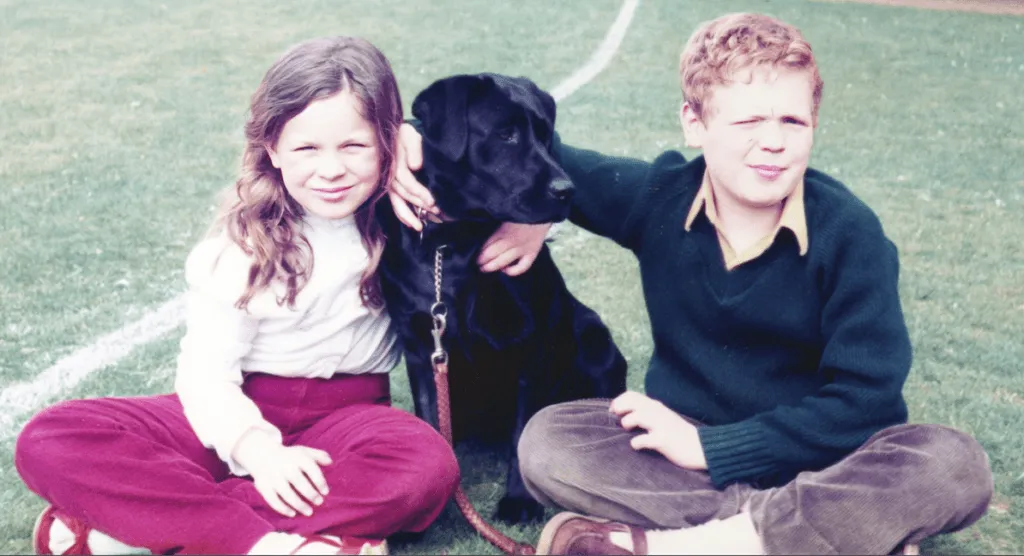Clare’s Clutter Clearing Story
It wasn’t until I started to clear my clutter with the support of a therapist that I came to learn that what I had always believed was a comfortable and ‘normal’ childhood was what other people called uncomfortable.
Feeling uncomfortable was so normal for me it was comfortable. I never knew there was a ‘comfort zone’ until my late 20’s, so it’s not a surprise that I was comfortable with my clutter while those around me were baffled as to how I could live like that.
It’s important to acknowledge that there are different types of comfortable – physical, emotional, financial etc. I didn’t know the difference between them, having grown up in a family where the only comfort that mattered was financial comfort. My parents only ever focused on and prioritised financial comfort and stability, having not grown up with it themselves. Money and material possessions were serious things to be taken seriously, not enjoyed, or joked about.
My parents bought me my first car, stating that it was bought with inheritance tax allowance money. My 18th and 21st birthdays were not celebrated beyond the usual family birthday meal out. No surprise then that my clutter epitomised what my parents considered wasteful and unnecessary frivolity, excess, luxury, unnecessary ‘rewards’.
To the outside world I grew up in a privileged family. We lived in a 5-bedroom house, my mother was a stay-at home mother who didn’t have to go out to work, my brother and I were educated privately, we were a two-car family, we had two black Labradors, holidays abroad, a caravan (what were they thinking? We didn’t get on as a family in the 5-bedroom house and my brother and I were virtual strangers because he was away at boarding school – what make them think we’d get on in a confined tin can in the middle of a field?!).

My brother was sent off to boarding school at the age of 8 and I only saw him during the holidays (photo above of us and the family dog Ebony at his school at the end of term). Describing Simon going to school in a letter to her parents my mother wrote: I have been amazed at the release of pressure on me, with only one child at home to deal with. I was then at home alone from the age of 5 to 12 with a narcissistic mother who had undiagnosed and untreated severe post-natal depression and undiagnosed manic depression.
My mother has no maternal or nurturing instinct or desire. My father is also narcissistic. Of 17 recognised signs of narcissistic parents, my parents score 16. Combined with issues from their own childhood and a lack of self-awareness about their issues, I have come to learn and understand that my parents were not capable of nurturing or raising happy, emotionally healthy, independent children.
When I was growing up, being uncomfortable was my norm – my comfort zone. My father was rarely at home due to work, so I was at home with my mother who – due to her undiagnosed conditions – could switch from Jekyll to Hyde in a heartbeat. Even the dogs knew when it was best to stay in their dog baskets to avoid the verbal firing line. I never questioned or complained, but when I started to have playdates and see my friends’ mothers hugging, kissing, helping with homework, listening and – shock horror – asking us all for our opinions and thoughts, I noticed how much more relaxed and comfortable their home lives were compared to my own.
One benefit of learning is that we have the feedback from our experiences to inform our thoughts and future decisions, and it was this that helped me to understand why I was so uncomfortable at home, even though I was powerless to change it.
My privileged upbringing meant that I was completely dependent on my parents – mentally, financially, practically. I rarely made a decision without ‘asking’ them first. Sadly, any challenge or attempt to connect on an emotional level was ignored as irrelevant. All that mattered was being financially secure.
Talking about feelings or debating things was never encouraged and always dismissed. I was repeatedly told I was ‘ungrateful’ if I asked for anything or questioned a decision that was made for me. We never had impromptu, casual conversations about day-to-day things or events. Conversations were always scheduled and planned for, they had to have a clear purpose. In my 20’s they were even treated as business meetings with a written agenda. My brother and I became experts in presenting any request for financial help or support in a way that we knew they would approve, even with ‘evidence’ in a spreadsheet.
Yet I yearned for emotional comfort and safety, a safe place where I could work out who I was. I couldn’t relate to my friends going through the teenage rebellion stage, testing boundaries, learning to think abstractly, questioning things. I was used to doing as expected, trying to please my mother in the hopes of getting a sign that she loved me unconditionally, doing what I was told, accepting my parents as knowing what was best for me, and not questioning anything.
What I found uncomfortable when I did my LIFE Timeline exercise was to see all these things clearly, and to see how, for me, they had culminated in my making a connection to my pets and my clutter which gave me the unconditional emotional comfort and safety I didn’t get from my parents. Talking to them about what I needed wasn’t an option. My clutter was the only way I could express myself or get any emotional response from them – negative of course.
Covent Garden
When I realised the connection between my uncomfortable life and my clutter I went to my therapist. I told her I felt emotionally numb, that I felt more for my pets and my clutter than my parents, and that I realised I had learnt to never risk being vulnerable by expressing myself or sharing my feelings with people.
As I sat in that little red room in the Therapy Rooms in Covent Garden, Meg asked me: ‘When was the last time your parents told you they loved you?’ I looked at her blankly. The tears rolling down my face as we sat with the discomfort of that void in my life. I came to understand that I never felt emotionally safe, and my parents never taught me it’s OK and safe to feel vulnerable and uncomfortable in my family.
My clutter was my attempt to self-soothe, as was my over-eating and my unhealthy relationships with men who were never committed, long-term life partner prospects. My 20’s were full of life clutter and poor decisions. They represented the teenage rebellion I had never experienced because I was busy being uncomfortable to make my parents comfortable. I was too busy being the ‘good girl’ hoping to get approval.
I finally realised I needed to get comfortable being uncomfortable if I wanted to clear my clutter. I had to accept that dealing with my clutter would cause a shift in my relationship with my parents. I decided that my comfort was more important than their comfort. I accepted that they never had – and were unlikely to ever – be willing to get comfortable being uncomfortable. I realised that I had to choose between staying in their comfort zone with them or step outside to find mine – and start living my best life.
I can still remember sitting on the London Underground tube train on my way home from that therapy session having realised that clearing my clutter was about to get uncomfortable for me and my family – and that if the only way I could start living my best life was to get comfortable with being uncomfortable, then that was what I had to do. If you are ready to get comfortable with feeling uncomfortable, visit my Help Centre to find out how I can help you get started. https://www.clutterclearing.net/clares-help-centre/
